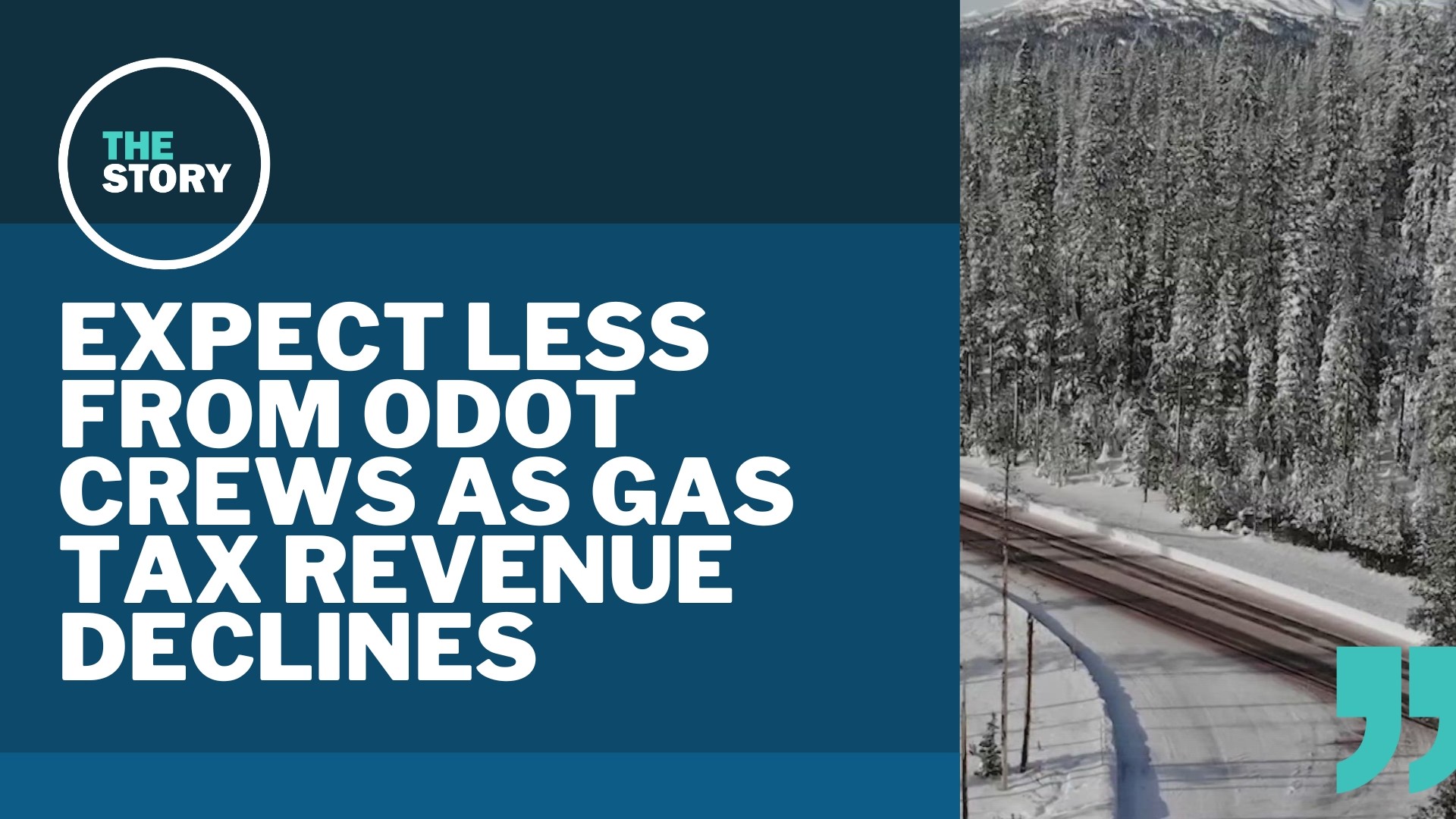PORTLAND, Ore. — The Pacific Northwest is heading into an El Niño winter, which could mean that Portland catches a break from some of the snow and ice storms that have hit the region in recent years — and it turns out there's an added reason to hope that the coming season follows the usual warmer and milder El Niño pattern.
The Oregon Department of Transportation says it's going to have a hard time maintaining all of its usual plowing and other winter road operations if a major snowstorm hits this winter. The agency is facing a budget shortfall due to declining gas tax revenue, according to ODOT spokesman Don Hamilton, resulting in staff shortages and other logistical problems.
Some of the milder impacts can already be seen, Hamilton said, such as overgrown landscaping and increased graffiti along freeways. But winter storms are the biggest all-hands-on-deck moments for the agency, so that's where the biggest pinch will be felt if there aren't enough hands available. It could mean less frequent plowing on some roads, and less frequent de-icer, salt and sand treatments.
"People are going to notice the difference in this if we get hit by a winter storm," Hamilton said. "It's not going to be the same, it's going to be different."
ODOT struggled with an operator shortage last winter too, particularly when an intense February storm rolled in and began dropping snow on the roads very quickly. It's a chronic problem driven by a progressive decline in revenue from Oregon's gas tax, which makes up a major portion of ODOT's funding.
Heavy inflation in recent years has added to the issue, Hamilton said, and the COVID pandemic took a big bite out of gas tax revenue because car trips heavily decreased. But even though traffic is rebounding, the gas tax revenue still isn't bouncing back to where it used to be.
"The gas tax has served us pretty well for the last century. As long as we've been able to rely on the internal combustion engine, it's done very, very well for us for a long time," he said. "But conditions are changing out there with the rise of electric vehicles, with the greater efficiency of the internal combustion engine, so things are certainly changing out there in that world and we've got to start to try to find some new mechanisms for funding our roads."
The problem isn't unique to ODOT; the Portland Bureau of Transportation delivered a blunt warning to the Portland city council last month, declaring it will need to cut $32 million in basic service and maintenance costs next year if the city can't come up with a way to fill the growing budget hole left behind by the shrinking gas tax.
"This has been coming for a while, and we're going to be talking about this in the months and in the years ahead too," Hamilton said. "And we're going to have this conversation with the public and with the legislators, and we're going to see what can be done possibly for the 2025 legislative session."
In the more immediate term, Hamilton said ODOT is hoping for a milder winter but still preparing to tackle whatever comes along as best it can. In the Portland area, freeways and major arterial roads will still be the highest priority, but all drivers will need to be aware that resources are more limited, and should consider trying to avoid the roads altogether during snowstorms.
"We all have to remember that we're responsible for our own driving skills out there, and this may be one of those years, if we get a winter storm, we've all got to watch out for our own safety out there on the roads. We all need to remember that this year," Hamilton said.

